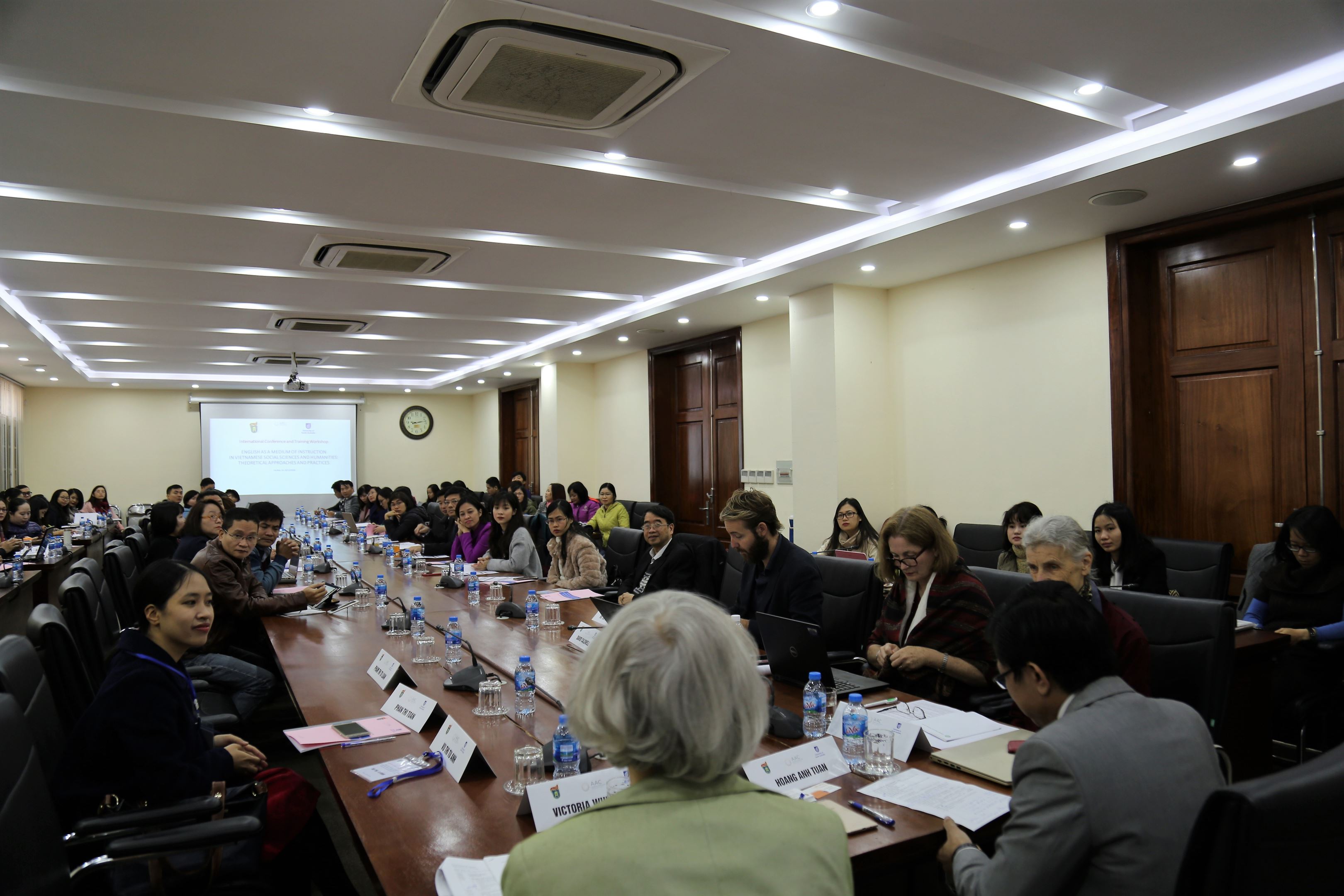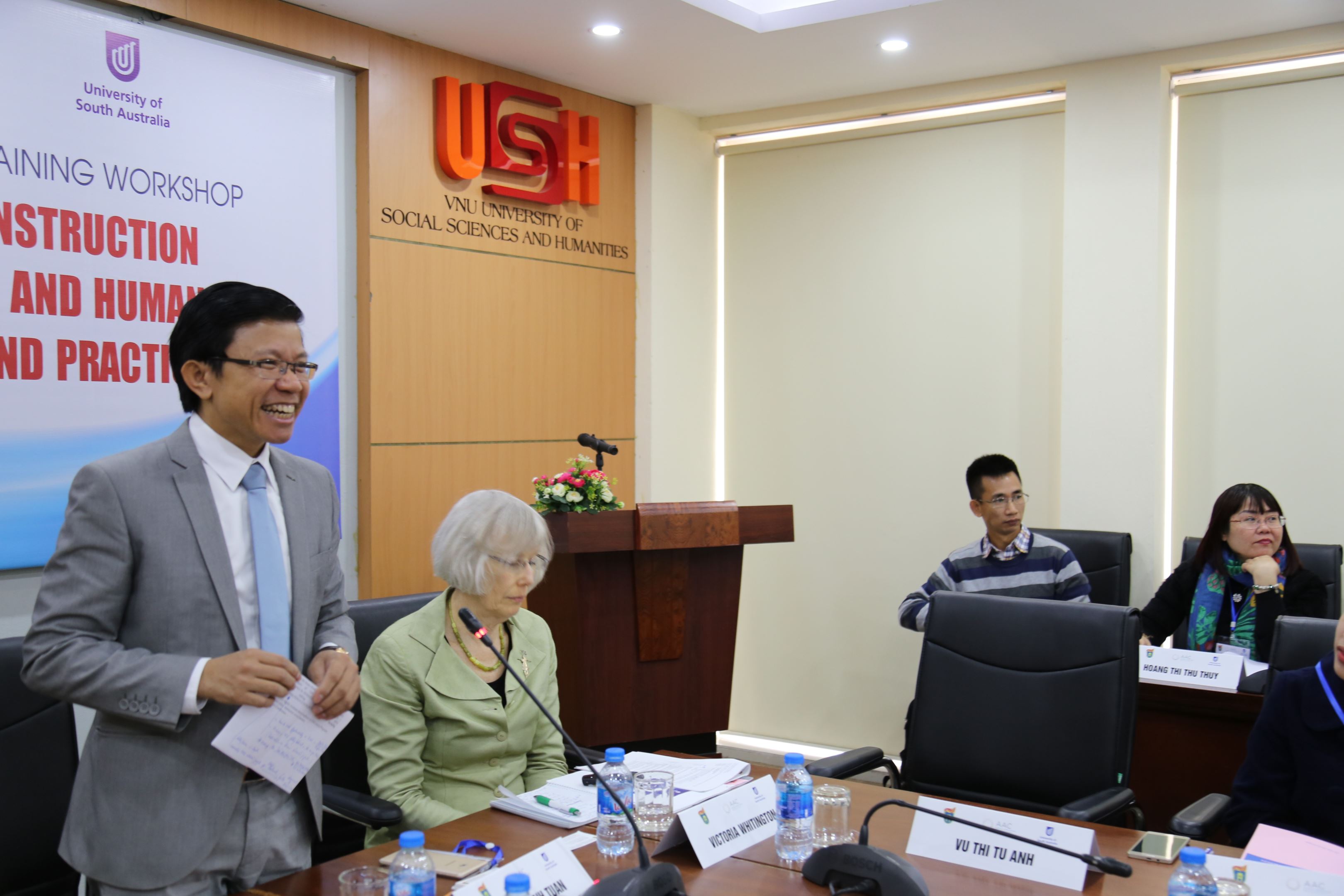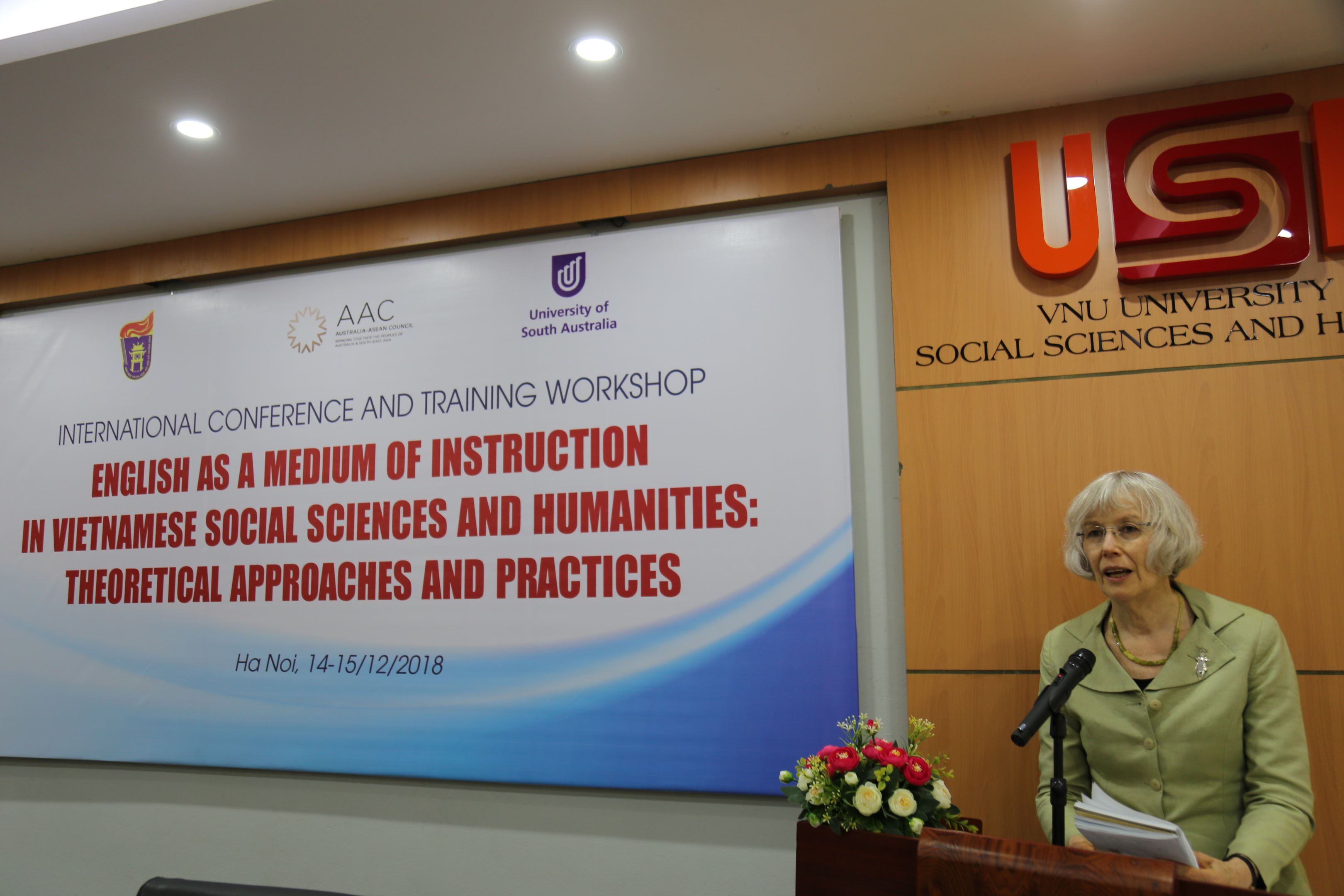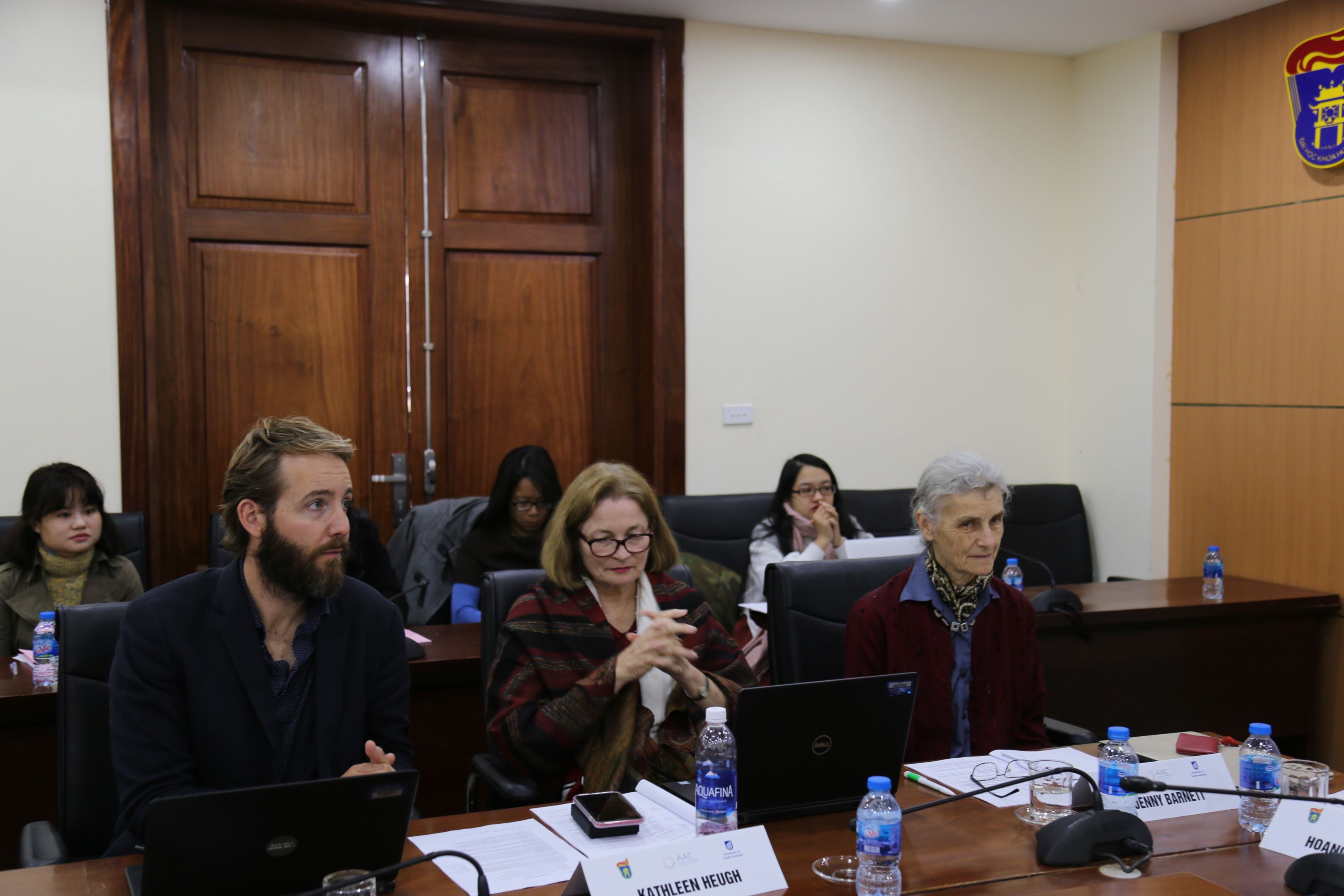The workshop was organized within the framework of a cooperation agreement between the University of Social Sciences and Humanities and the University of South Australia, with funding from the Australia-ASEAN Council. Its aim was to promote linkages between Australian and Vietnamese educational institutions in addressing challenges in higher education in Vietnam.

English as a Medium of Instruction and Research (EMI) is a strategy adopted by many universities where English is a foreign language. It originated in European countries such as Sweden, Finland, and New Zealand in the early 2000s, and subsequently spread to Asian countries like Singapore, Hong Kong, China, and Japan. Currently, 24 universities in Vietnam apply EMI in various fields and disciplines. During this process, Vietnamese lecturers and students have faced numerous challenges related to language proficiency, teaching methods, learning materials, and equipment. Therefore, this workshop serves as a forum for administrators, researchers, and lecturers to share perspectives, policies, and experiences regarding EMI; thereby identifying its implications for teaching and research in the social sciences and humanities in Vietnam.
In his opening remarks at the workshop, Assoc. Prof. Dr. Hoang Anh Tuan (Vice Rector of the University of Social Sciences and Humanities) affirmed that EMI has become a popular topic worldwide, especially in Asia. Many universities have recognized EMI as one of the tools to promote higher education and international integration. Vietnam is no exception. For example, in November 2018, EMI was discussed at the workshop "The need for high-quality human resources for development in the context of the 4.0 revolution and the responses of Vietnamese higher education" co-organized by the Vietnam National University Ho Chi Minh City and the National Council for Education and Human Resource Development.

Assoc. Prof. Dr. Hoang Anh Tuan delivered the opening remarks at the workshop.
Associate Professor Hoang Anh Tuan also believes that, in the current context of international competition, Vietnamese universities must address many major issues, including foreign languages. Therefore, to avoid being left behind, they need to build a long-term and stable cooperation network on EMI.
Following the opening remarks, the workshop continued with the following topics: “Policies and Implementation: National and Institutional EMI Policies in Practice”, “EMI Policies in Practice: Perspectives from Faculty, Administrators, and Students”, and “EMI Training Programs and Teaching Strategies in Practice”.
Keynote speeches at the conference:
The presentation "EMI and the Internationalization of Higher Education" by Assoc. Prof. Dr. Victoria Whitington (Vice Dean of the School of Education, University of South Australia) outlined the benefits and challenges of EMI for higher education institutions, based on research findings and student experiences in Australia, Papua New Guinea, and Singapore. It then proposed several macro and micro policy directions regarding EMI for the governments of these countries.

Associate Professor Victoria Whitington (Vice Dean of the School of Education, University of South Australia) presented the keynote address.
The presentation "EMI at Social Sciences Universities in Vietnam: From Development to Policy Implementation" by Assoc. Prof. Dr. Vu Thi Tu Anh (Ministry of Education and Training, Vietnam) points out the opportunities and challenges in using EMI to develop foreign language teaching and learning policies at social sciences universities. It emphasizes the importance of carefully considering the necessary steps in EMI-based educational policies.
The presentation "EMI and Vietnamese Social Sciences and Humanities: Dreams – Challenges – Prospects" by Assoc. Prof. Dr. Hoang Anh Tuan (Vice Rector of the University of Social Sciences and Humanities, Vietnam National University, Hanoi) shared the difficulties and challenges the university faces in designing and teaching courses in English, especially in basic sciences such as Philosophy, History, Literature, and Political Science. From there, the presentation proposed systematic policies to encourage lecturers and students to participate more in EMI courses.
The presentation "EMI in Higher Education in the 21st Century" by Assoc. Prof. Dr. Kathleen Heugh (Lecturer at the School of Creative Industries, University of South Australia) clarifies the importance of bilingual/multilingual competence in the context of the internationalization of higher education in many countries, including Vietnam. It highlights the need to combine improving English proficiency with native and regional language skills for university students.

Representatives from the University of South Australia, from left to right: Dr. David Caldwell (School of Education), Assoc. Prof. Dr. Kathleen Heugh (School of Creative Industries), Dr. Jenny Barnett (School of Education)
The paper "EMI Teacher Training in Vietnam: Theoretical and Practical Issues" by Dr. Vu Thi Thanh Nha (University of Foreign Languages, Vietnam National University, Hanoi) points out issues in EMI teacher training such as defining competency criteria; adjusting training objectives to suit different contexts, policies, and EMI strategies. The paper is based on a case study of 58 postgraduate students on EMI methodology at a public university in Vietnam.
The presentation "Genre Pedagogy: Implications for EMI" by Dr. David Caldwell (Lecturer at the School of Education, University of South Australia) provides an overview of genre pedagogy, emphasizing its role in writing construction. The presentation also clarifies the importance of this method in developing writing skills for EMI students.
Following the workshop, a training session on the topic of "Course Design for EMI" will take place on December 15th with two main components: "Pedagogical Options for EMI Teachers" with interactive presentations and pair work; and "Building and Demonstrating Pedagogical Options for EMI Training Programs" with group activities, reports, and group discussions.
Author:Tran Minh
Newer news
Older news